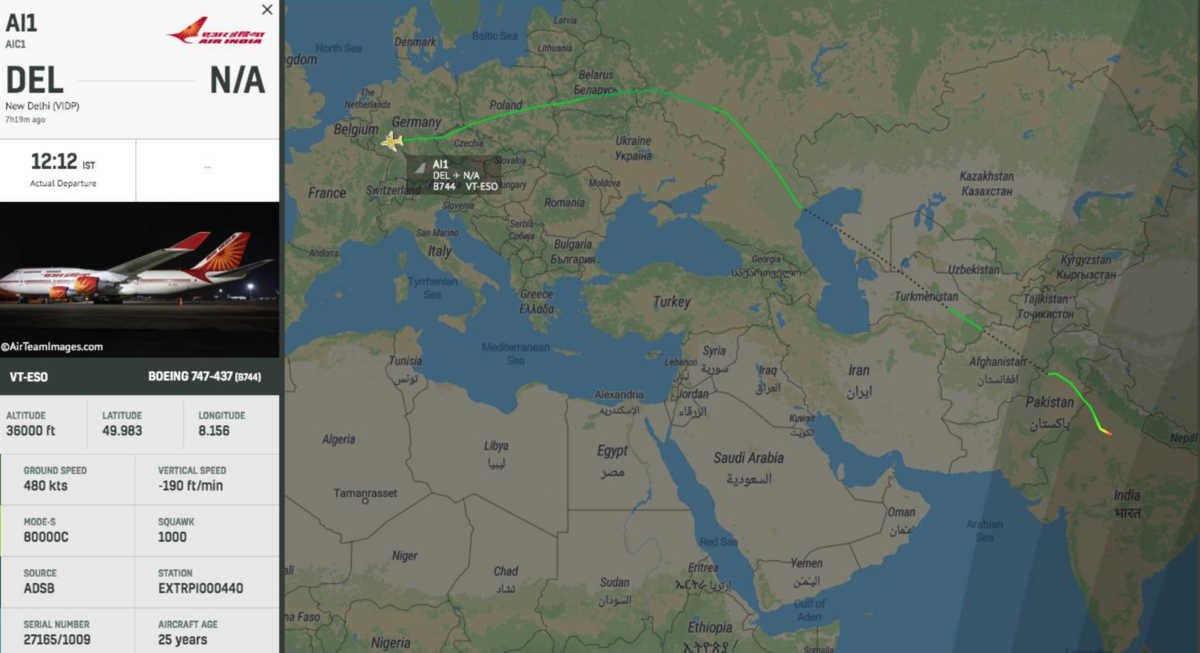ISLAMABAD: Indian Prime Minister Narendra Modi’s plane flew through Pakistani airspace en route to a Group of Seven summit in France, Pakistan’s foreign office said on Saturday, at a time when relations between the nuclear-armed neighbors are at their worst in decades over the disputed Kashmir region.
On August 5, the Indian government revoked the special constitutional status of Jammu and Kashmir under which people from the rest of India could not buy property or compete for government jobs and college places in the Muslim-majority region.
Modi’s surprise move increased tensions with arch rival Pakistan which lays claim to Kashmir and has accused India of human rights violations in the territory at the heart of more than 70 years of hostility between the two countries.

A map shows the route that Indian Prime Minister Narendra Modi's Air India One plane took en route to Paris on Thursday, August 22, 2019. Pakistan has confirmed the Indian PM flew through Pakistan's airspace on his way to France. (Courtesy: RadarBox
Foreign office spokesman Dr. Mohammad Faisal confirmed to Arab News that the plane carrying Modi to France had passed through Pakistani airspace but said this was a “normal, routine process.”
Pakistan closed its airspace this February after a suicide attack by a Pakistan-based militant group in Indian-administered Kashmir led to aerial bombing missions on each other’s soil and a fighter dogfight over Kashmir. As a result, commercial and cargo airlines using Indian airspace were forced to take costly and time-consuming detours because they could not fly over Pakistan.
Airspace was reopened in July, a welcome break for international airlines given that Pakistan lies on an important aviation corridor and Indian operators were particularly badly affected by the shutdown.
In June, during the blockade, Modi avoided flying over Pakistan during an official trip to Central Asia even though Pakistan has granted overflight access.
“This is a routine matter, they often use it [Pakistani airspace], we also use it [Indian airspace],” Faisal said about Modi’s plane flying through Pakistani airspace on Thursday. “There are ICAO [International Civil Aviation Organization] regulations under which it is mandatory to give them overflight clearance as long as airspace is open.”
“If airspace is closed due to some reason, if there is a war-type situation, then there are special circumstances in which you can stop it,” Faisal said. “Right now, neither they can stop us, nor we can stop them. This is a normal routine process.”
















